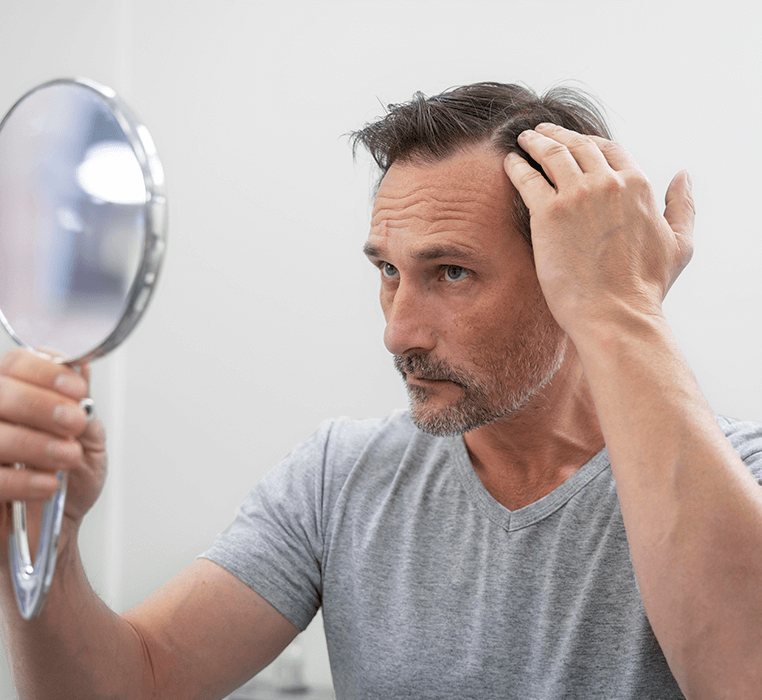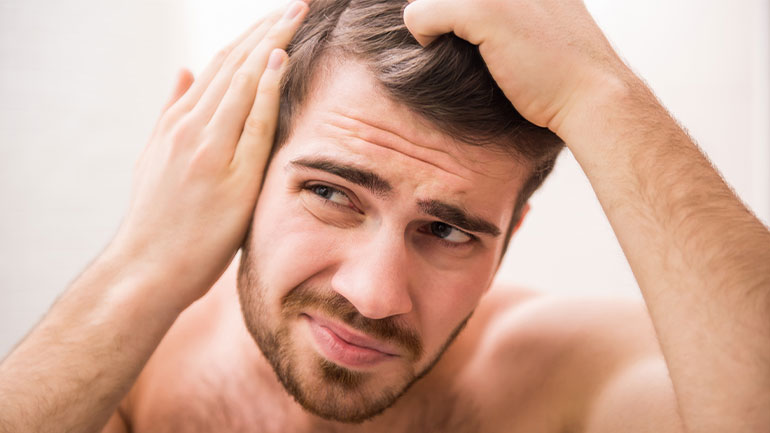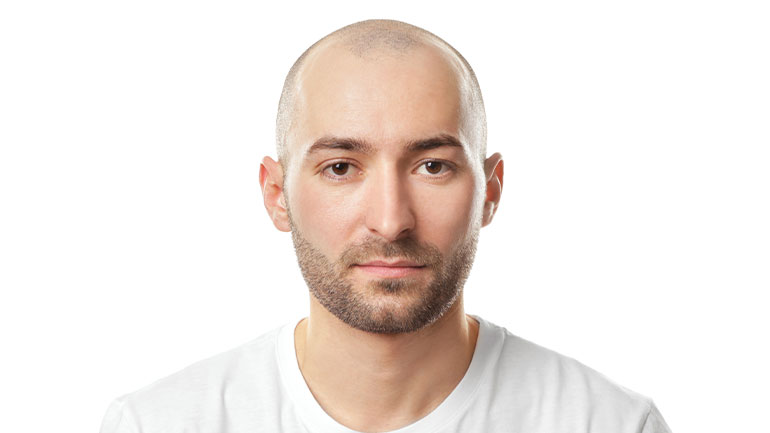.png)
What is Androgenetic Alopecia?
Androgenetic alopecia, also known as male- or female-pattern baldness, is a common condition that causes hair loss. It is caused by a combination of genetics and hormones.
It is characterized by a receding hairline and thinning of the hair on the top and crown of the head in men and general thinning of the hair on the top of the head in women. It is a progressive condition, meaning it will get progressively worse over time. There are various methods of treating androgenetic alopecia that can help slow hair loss or stimulate new hair growth. CLINIQUEPLUS is always at your side to determine the most suitable treatment for you.
What are the Causes of Androgenetic Alopecia?
Androgenetic alopecia, also known as male or female pattern hair loss, is caused by a combination of genetic and hormonal factors. It is the most common type of hair loss, and it tends to run in families. Men and women with a family history of androgenetic alopecia are more likely to develop the condition themselves.
The main cause of androgenetic alopecia is the presence of dihydrotestosterone (DHT) in the body. DHT is a byproduct of testosterone that is produced by the enzyme 5-alpha reductase. DHT binds to receptors in the hair follicles and causes them to shrink, leading to thinning hair and eventual hair loss.
Other factors that may contribute to androgenetic alopecia include aging, hormonal changes, and certain medical conditions. However, the main cause of androgenetic alopecia is genetics, and there is no known way to prevent it.
What are the Symptoms of Androgenetic Alopecia?
The main symptom of androgenetic alopecia is thinning hair or hair loss. In men, this usually presents as a receding hairline or thinning at the crown of the head. In women, it is usually characterized by thinning hair on the top and front of the head.
Other symptoms of androgenetic alopecia include gradual hair thinning or loss, a family history of hair loss, increased hair loss, and a decrease in the number of hair follicles.
It is important to remember that not everyone with androgenetic alopecia will experience all of these symptoms and the severity of the condition can vary greatly from person to person. If you are concerned about hair loss, it is important to speak to a healthcare professional for an accurate diagnosis and treatment options.
How is Androgenetic Alopecia Treated?
Various treatment options can help slow or stop the progression of androgenetic alopecia. The most effective treatment for androgenetic alopecia will depend on the individual, their age, the severity of hair loss, and their general health.
Medication: Several medications can help slow or stop hair loss, including minoxidil (Rogaine) and finasteride (Propecia). These medications are applied topically or taken orally and work by blocking DHT production or promoting hair growth.
Hair Transplant Surgery: This procedure involves transferring hair from a donor area (usually the back of the head) to the area with hair loss. It is a permanent solution but can be expensive and time-consuming.
Laser Treatment: Low-level laser therapy is a non-invasive treatment that uses a laser to stimulate hair growth. It is usually well tolerated, but its long-term effectiveness is not well established.
Platelet-rich Plasma (PRP) Therapy: PRP therapy involves injecting a concentration of platelets and growth factors into the scalp to stimulate hair growth. The effectiveness of PRP treatment is not well established and may not be suitable for everyone.
What Happens if Androgenetic Alopecia is Not Treated?
If androgenetic alopecia is not treated, it will usually progress over time. The rate at which the condition progresses can vary from person to person, and it is generally more rapid in men than in women. Without treatment, hair loss will continue until a significant amount of hair has been lost.
While androgenetic alopecia is not a medical emergency, it can have significant psychological and social impacts. Hair loss can affect self-esteem and body image, and it can lead to social isolation and depression.
If you are concerned about hair loss, it is important to talk to a health professional to determine the best course of treatment. At this point, CLINIQUEPLUS is at your side with counseling services and a high rate of positive results. You can get detailed information about androgenetic alopecia treatment and androgenetic alopecia treatment costs in Turkey and you can achieve the desired appearance by reaching the most suitable treatment for you.






